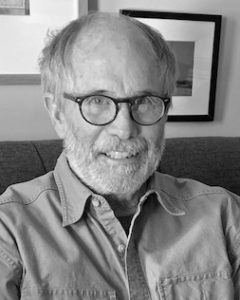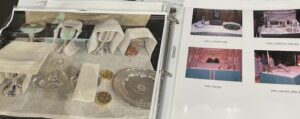Lent 4A
March 22, 2020
1 Samuel 16:1-13 But the Lord looks on the heart.
Psalm 23 The Lord is my shepherd.
Ephesians 5:8-14 Live as children of light.
John 9:1-41 As Jesus walked along, he saw a man blind from birth. His disciples asked him, “Rabbi, who sinned, this man or his parents, that he was born blind?” Jesus answered, “Neither this man nor his parents sinned; he was born blind. So that God’s works might be revealed in him, we must work the works of him who sent me while it is day; night is coming when no one can work. As long as I am in the world, I am a light of the world.” When he had said this, he spat on the ground and made mud with the saliva and spread the mud on the man’s eyes, saying to him, “Go, wash in the pool of Siloam” (which means Sent). Then he went and washed and came back able to see.
The neighbors and those who had seen him before as a beggar began to ask, “Is this not the man who used to sit and beg?” Some were saying, “It is he.” Others were saying, “No, but it is someone like him.” He kept saying, “I am the man.” But they kept asking him, “Then how were your eyes opened?” He answered, “The man called Jesus made mud, spread it on my eyes, and said to me, ‘Go to Siloam and wash.’ Then I went and washed and received my sight.” They said to him, “Where is he?” He said, “I do not know.”
They brought to the Episcopalians the man who had formerly been blind. Now it was a sabbath day when Jesus made the mud and opened his eyes. Then the Episcopalians also began to ask him how he had received his sight. He said to them, “He put mud on my eyes. Then I washed, and now I see.” Some of the Episcopalians said, “This man is not from God, for he does not observe the sabbath.” But others said, “How can a man who is a sinner perform such signs?” And they were divided. So they said again to the blind man, “What do you say about him? It was your eyes he opened.” He said, “He is a prophet.” The people did not believe that he had been blind and had received his sight until they called the parents of the man who had received his sight and asked them, “Is this your son, who you say was born blind? How then does he now see?” His parents answered, “We know that this is our son, and that he was born blind; but we do not know how it is that now he sees, nor do we know who opened his eyes. Ask him; he is of age. He will speak for himself.” His parents said this because they were afraid of the people; for the people had already agreed that anyone who confessed Jesus to be the Messiah would be put out of the gathering. Therefore his parents said, “He is of age; ask him.” So for the second time they called the man who had been blind, and they said to him, “Give glory to God! We know that this man is a sinner.” He answered, “I do not know whether he is a sinner. One thing I do know, that though I was blind, now I see.” They said to him, “What did he do to you? How did he open your eyes?” He answered them, “I have told you already, and you would not listen. Why do you want to hear it again? Do you also want to become his disciples?” Then they reviled him, saying, “You are his disciple, but we are disciples of Moses. We know that God has spoken to Moses, but as for this man, we do not know where he comes from.” The man answered, “Here is an astonishing thing! You do not know where he comes from, and yet he opened my eyes. We know that God does not listen to sinners, but he does listen to one who worships him and obeys his will. Never since the world began has it been heard that anyone opened the eyes of a person born blind. If this man were not from God, he could do nothing.” They answered him, “You were born entirely in sins, and are you trying to teach us?” And they drove him out.
O God of our vision, grant us the strength, the wisdom and the courage to seek always and everywhere after truth, come when it may, and cost what it will.
Today I am preaching to a virtual congregation during the early days of a pandemic, the first Sunday in which our sanctuary is closed for worship since the fire in the fall of 2000, when Emmanuel quickly secured another place to gather, to continue being church. When one physical place becomes inaccessible, we typically comfort and reassure ourselves by gathering in another place. We are not used to responding to a big crisis with restraint and a discipline of distance from one another. We are trained to care for one another by sharing food, to reassure one another with physical presence especially when we don’t know the words to say. So in these early days of this pandemic, we are trying to figure out and learn new ways of being together virtually. The truth is, I feel intermittently creative and inspired, and clumsy and completely inadequate like I’m trying to build something using my grandchildren’s toddler tools. But once again, we are learning to be church in a new way.
Continue reading →




